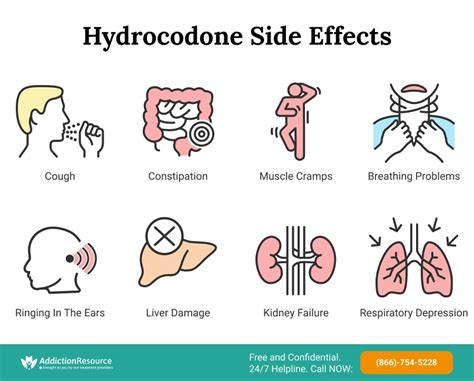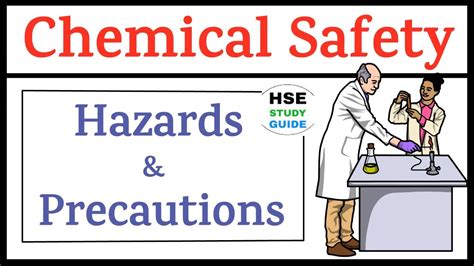Intro
Discover Hydrocodone Acetaminophen side effects, including addiction, drowsiness, and liver damage. Learn about overdose risks, interactions, and withdrawal symptoms.
Hydrocodone acetaminophen is a widely prescribed medication used to treat moderate to severe pain. It is a combination of two active ingredients: hydrocodone, an opioid pain reliever, and acetaminophen, a non-opioid pain reliever and fever reducer. While this medication can be effective in managing pain, it is not without its risks and side effects. In this article, we will delve into the potential side effects of hydrocodone acetaminophen, exploring both common and rare adverse reactions, as well as steps to mitigate these effects.
The importance of understanding the side effects of hydrocodone acetaminophen cannot be overstated. As with any medication, especially those that combine an opioid with another active ingredient, the potential for adverse reactions exists. Patients and healthcare providers must be aware of these risks to ensure safe and effective treatment. Moreover, the opioid component of this medication carries the risk of dependence and addiction, making it crucial to use hydrocodone acetaminophen responsibly and under medical supervision.
Pain management is a critical aspect of healthcare, and hydrocodone acetaminophen plays a significant role in this area. However, the benefits of pain relief must be balanced against the potential for side effects. By educating ourselves about these side effects, we can better navigate the treatment landscape and make informed decisions about our health. Whether you are a patient considering hydrocodone acetaminophen for pain management or a healthcare provider prescribing this medication, understanding its side effects is essential for maximizing benefits while minimizing risks.
Common Side Effects of Hydrocodone Acetaminophen

Common side effects of hydrocodone acetaminophen include drowsiness, dizziness, nausea, vomiting, constipation, and headache. These side effects are often mild to moderate and may diminish as the body adjusts to the medication. However, if these effects are severe or persistent, patients should consult their healthcare provider. It's also important to note that the risk of certain side effects, such as constipation and drowsiness, can be mitigated through lifestyle adjustments, such as increasing fluid intake and engaging in regular physical activity.
Less Common but Serious Side Effects
Less common but more serious side effects of hydrocodone acetaminophen include respiratory depression, liver damage, and allergic reactions. Respiratory depression, which can be life-threatening, is a particular concern with opioid medications. Patients should seek immediate medical attention if they experience difficulty breathing, blue-tinged lips or fingers, or confusion. Liver damage is another potential risk, especially with prolonged use or in high doses, emphasizing the importance of regular liver function tests for patients on long-term hydrocodone acetaminophen therapy.Rare but Potentially Life-Threatening Side Effects

Rare but potentially life-threatening side effects of hydrocodone acetaminophen include anaphylaxis, Stevens-Johnson syndrome, and toxic epidermal necrolysis. These conditions are medical emergencies that require immediate attention. Symptoms such as difficulty breathing, rapid heartbeat, swelling of the face, lips, tongue, or throat, or severe skin reactions should prompt an urgent call to emergency services.
Long-Term Use and Dependence
Long-term use of hydrocodone acetaminophen can lead to physical dependence and addiction. The opioid component of this medication can cause the body to adapt, requiring more of the drug to achieve the same level of pain relief. This can lead to a vicious cycle of escalating doses and potential overdose. Healthcare providers must carefully monitor patients on long-term hydrocodone acetaminophen therapy for signs of dependence and adjust treatment plans as necessary to minimize this risk.Special Considerations and Precautions

Special considerations and precautions are necessary when prescribing hydrocodone acetaminophen, especially in certain populations such as the elderly, children, and individuals with certain medical conditions. For example, older adults may be more susceptible to the sedative effects of hydrocodone, increasing the risk of falls. Children, particularly those under the age of 18, should use hydrocodone acetaminophen with caution due to the risk of slowed or difficult breathing. Additionally, patients with a history of substance abuse, respiratory depression, or liver disease require careful monitoring and dose adjustment to avoid adverse outcomes.
Interactions with Other Medications
Hydrocodone acetaminophen can interact with other medications, either enhancing their effects or increasing the risk of side effects. For instance, combining hydrocodone acetaminophen with other central nervous system depressants, such as benzodiazepines or alcohol, can exacerbate sedation and respiratory depression. Patients should inform their healthcare provider about all medications they are taking, including over-the-counter drugs and supplements, to avoid potential interactions.Managing Side Effects and Minimizing Risks

To manage side effects and minimize risks associated with hydrocodone acetaminophen, patients should follow their prescribed dosing regimen closely, attend all scheduled follow-up appointments, and report any concerns or side effects to their healthcare provider promptly. Lifestyle adjustments, such as maintaining a healthy diet, staying hydrated, and engaging in gentle physical activity, can also help mitigate some side effects. Furthermore, patients and their families should be aware of the signs of overdose and addiction, seeking immediate medical help if these occur.
Conclusion and Future Directions
In conclusion, while hydrocodone acetaminophen is an effective medication for managing moderate to severe pain, it is crucial to be aware of its potential side effects and take steps to minimize risks. By understanding the common, less common, and rare side effects of this medication, patients and healthcare providers can work together to ensure safe and effective pain management. Future research should continue to explore safer opioid alternatives, improved dosing strategies, and enhanced patient education to further reduce the risks associated with hydrocodone acetaminophen and similar medications.What are the most common side effects of hydrocodone acetaminophen?
+The most common side effects include drowsiness, dizziness, nausea, vomiting, constipation, and headache.
Can hydrocodone acetaminophen lead to dependence and addiction?
+Yes, long-term use of hydrocodone acetaminophen can lead to physical dependence and addiction due to its opioid component.
How can I minimize the risks of side effects when taking hydrocodone acetaminophen?
+To minimize risks, follow your prescribed dosing regimen, report side effects to your healthcare provider, and make lifestyle adjustments such as staying hydrated and engaging in physical activity.
As we conclude our exploration of the side effects of hydrocodone acetaminophen, it's essential to remember that informed healthcare decisions are key to safe and effective treatment. We invite readers to share their experiences, ask questions, or seek further information on this critical topic. By engaging in open dialogue and continuing education, we can better navigate the complexities of pain management and work towards improved health outcomes for all.
